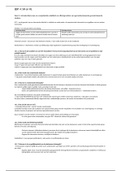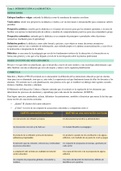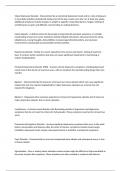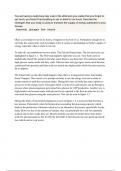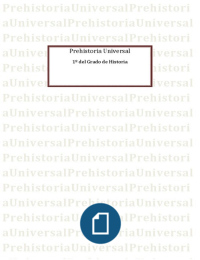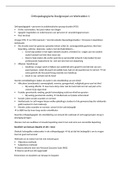THE DETECTIVE story is a kind of intellectual game. It is more — it is a sporting event. And for the
writing of detective stories there are very definite laws — unwritten, perhaps, but none the less
binding; and every respectable and self-respecting concocter of literary mysteries lives up to them.
Herewith, then, is a sort Credo, based partly on the practice of all the great writers of detective
stories, and partly on the promptings of the honest author’s inner conscience. To wit:
1. The reader must have equal opportunity with the detective for solving the mystery. All clues
must be plainly stated and described.
2. No willful tricks or deceptions may be placed on the reader other than those played legitimately
by the criminal on the detective himself.
3. There must be no love interest. The business in hand is to bring a criminal to the bar of justice,
not to bring a lovelorn couple to the hymeneal altar.
4. The detective himself, or one of the official investigators, should never turn out to be the
culprit. This is bald trickery, on a par with offering someone a bright penny for a five-dollar gold
piece. It’s false pretences.
5. The culprit must be determined by logical deductions — not by accident or coincidence or
unmotivated confession. To solve a criminal problem in this latter fashion is like sending the reader
on a deliberate wild-goose chase, and then telling him, after he has failed, that you had the object of
his search up your sleeve all the time. Such an author is no better than a practical joker.
6. The detective novel must have a detective in it; and a detective is not a detective unless he
detects. His function is to gather clues that will eventually lead to the person who did the dirty work
in the first chapter; and if the detective does not reach his conclusions through an analysis of those
clues, he has no more solved his problem than the schoolboy who gets his answer out of the back of
the arithmetic.
7. There simply must be a corpse in a detective novel, and the deader the corpse the better. No
lesser crime than murder will suffice. Three hundred pages is far too much bother for a crime other
than murder. After all, the reader’s trouble and expenditure of energy must be rewarded.
8. The problem of the crime must he solved by strictly naturalistic means. Such methods for
learning the truth as slate-writing, ouija-boards, mind-reading, spiritualistic seances, crystal-gazing,
and the like, are taboo. A reader has a chance when matching his wits with a rationalistic detective,
but if he must compete with the world of spirits and go chasing about the fourth dimension of
metaphysics, he is defeated ab initio.
9. There must be but one detective — that is, but one protagonist of deduction — one deus ex
machina. To bring the minds of three or four, or sometimes a gang of detectives to bear on a
problem, is not only to disperse the interest and break the direct thread of logic, but to take an
unfair advantage of the reader. If there is more than one detective the reader doesn’t know who his
conductor is. It’s like making the reader run a race with a relay team.
10. The culprit must turn out to be a person who has played a more or less prominent part in the
story — that is, a person with whom the reader is familiar and in whom he takes an interest.
11. A servant must not be chosen by the author as the culprit. This is begging a noble question. It is
a too easy solution. The culprit must be a decidedly worth-while person — one that wouldn’t
ordinarily come under suspicion.
12. There must be but one culprit, no matter how many murders are committed. The culprit may,
of course, have a minor helper or co-plotter; but the entire onus must rest on one pair of shoulders:
the entire indignation of the reader must be permitted to concentrate on a single black nature.
writing of detective stories there are very definite laws — unwritten, perhaps, but none the less
binding; and every respectable and self-respecting concocter of literary mysteries lives up to them.
Herewith, then, is a sort Credo, based partly on the practice of all the great writers of detective
stories, and partly on the promptings of the honest author’s inner conscience. To wit:
1. The reader must have equal opportunity with the detective for solving the mystery. All clues
must be plainly stated and described.
2. No willful tricks or deceptions may be placed on the reader other than those played legitimately
by the criminal on the detective himself.
3. There must be no love interest. The business in hand is to bring a criminal to the bar of justice,
not to bring a lovelorn couple to the hymeneal altar.
4. The detective himself, or one of the official investigators, should never turn out to be the
culprit. This is bald trickery, on a par with offering someone a bright penny for a five-dollar gold
piece. It’s false pretences.
5. The culprit must be determined by logical deductions — not by accident or coincidence or
unmotivated confession. To solve a criminal problem in this latter fashion is like sending the reader
on a deliberate wild-goose chase, and then telling him, after he has failed, that you had the object of
his search up your sleeve all the time. Such an author is no better than a practical joker.
6. The detective novel must have a detective in it; and a detective is not a detective unless he
detects. His function is to gather clues that will eventually lead to the person who did the dirty work
in the first chapter; and if the detective does not reach his conclusions through an analysis of those
clues, he has no more solved his problem than the schoolboy who gets his answer out of the back of
the arithmetic.
7. There simply must be a corpse in a detective novel, and the deader the corpse the better. No
lesser crime than murder will suffice. Three hundred pages is far too much bother for a crime other
than murder. After all, the reader’s trouble and expenditure of energy must be rewarded.
8. The problem of the crime must he solved by strictly naturalistic means. Such methods for
learning the truth as slate-writing, ouija-boards, mind-reading, spiritualistic seances, crystal-gazing,
and the like, are taboo. A reader has a chance when matching his wits with a rationalistic detective,
but if he must compete with the world of spirits and go chasing about the fourth dimension of
metaphysics, he is defeated ab initio.
9. There must be but one detective — that is, but one protagonist of deduction — one deus ex
machina. To bring the minds of three or four, or sometimes a gang of detectives to bear on a
problem, is not only to disperse the interest and break the direct thread of logic, but to take an
unfair advantage of the reader. If there is more than one detective the reader doesn’t know who his
conductor is. It’s like making the reader run a race with a relay team.
10. The culprit must turn out to be a person who has played a more or less prominent part in the
story — that is, a person with whom the reader is familiar and in whom he takes an interest.
11. A servant must not be chosen by the author as the culprit. This is begging a noble question. It is
a too easy solution. The culprit must be a decidedly worth-while person — one that wouldn’t
ordinarily come under suspicion.
12. There must be but one culprit, no matter how many murders are committed. The culprit may,
of course, have a minor helper or co-plotter; but the entire onus must rest on one pair of shoulders:
the entire indignation of the reader must be permitted to concentrate on a single black nature.



